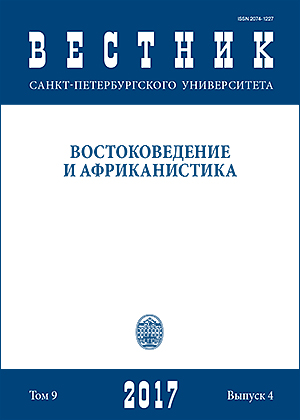The Image of the Soviet Union and Russia in Chinese history textbooks of the 2000s (in the perspective of development of Chinese historiography)
DOI:
https://doi.org/10.21638/11701/spbu13.2017.410Аннотация
Статья посвящена анализу образа России и Советского Союза в современных китайских учебниках для старшей и средней школы. Содержание учебников КНР отражает сложные и разнонаправленные тенденции как в академической, так и в политической жизни страны. И в этом отношении Россия оказывается весьма неудобным объектом для интерпретации, выявляющим противоречивость нынешнего курса Китая. Требования идеологической политики вынуждают признавать конечную победу социализма, и это позволяет акцентировать опыт Октябрьской революции и дальнейшего социалистического строительства. Однако реальный внешнеэкономический и политический курс направлен на интеграцию в систему глобального капитализма, что требует весьма критически оценивать социально-исторический опыт Советского Союза.
Ключевые слова:
образовательная политика КНР, Октябрьская революция, Сoветская Россия, учебный план, образовательный стандарт, исторические учебники для средней школы
Скачивания
Библиографические ссылки
Textbook in 2007]. Xinjaioyu, 2015, no. 4. (In Chinese)
Загрузки
Опубликован
Как цитировать
Выпуск
Раздел
Лицензия
Статьи журнала «Вестник Санкт-Петербургского университета. Востоковедение и африканистика» находятся в открытом доступе и распространяются в соответствии с условиями Лицензионного Договора с Санкт-Петербургским государственным университетом, который бесплатно предоставляет авторам неограниченное распространение и самостоятельное архивирование.





